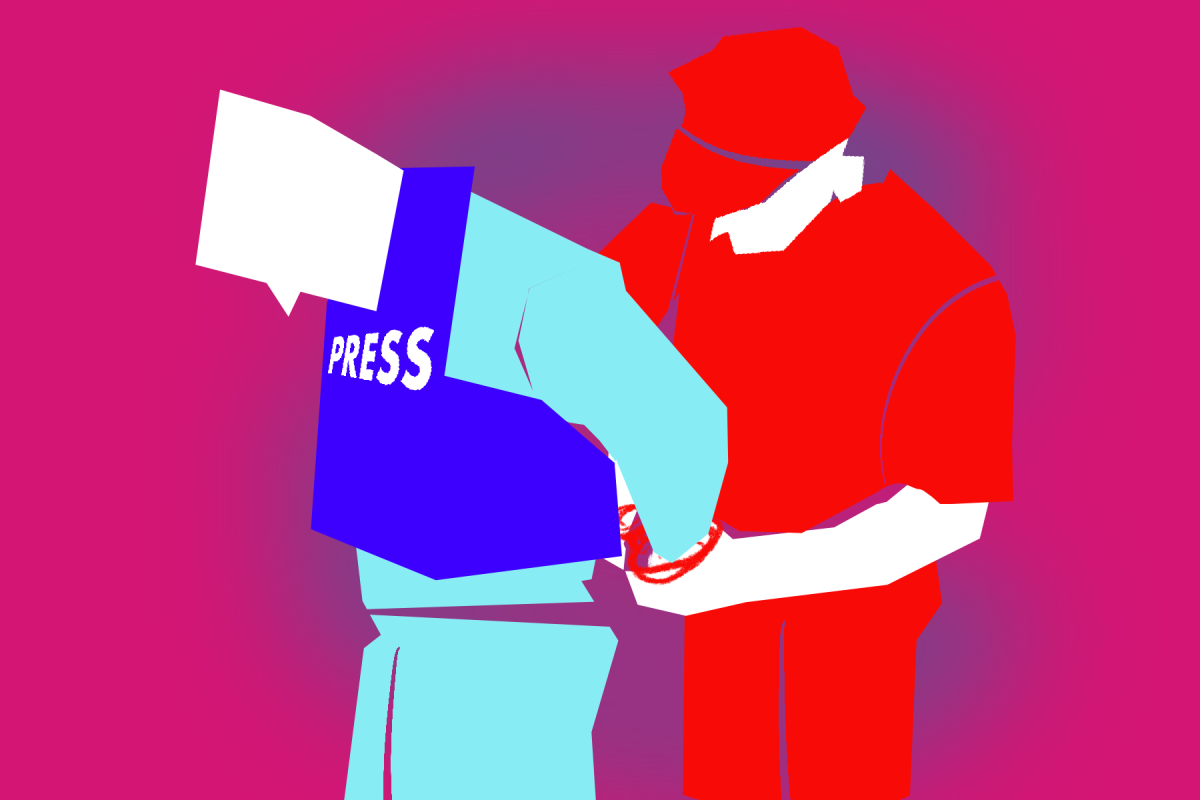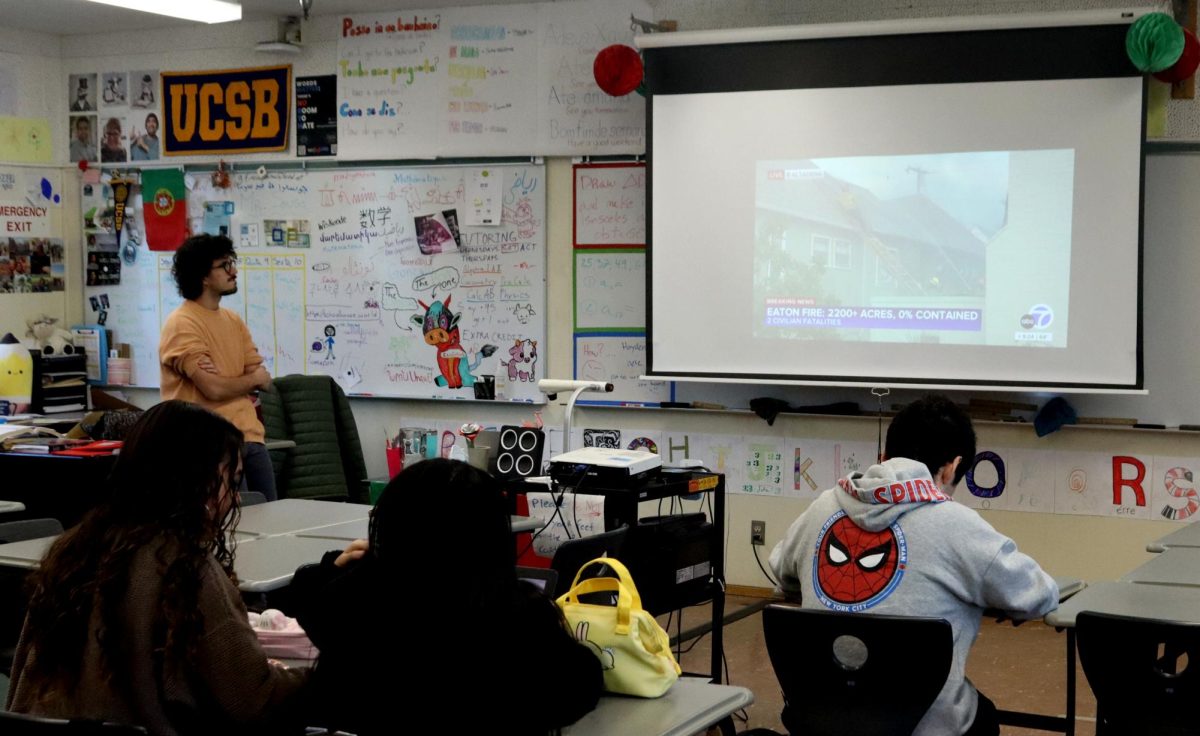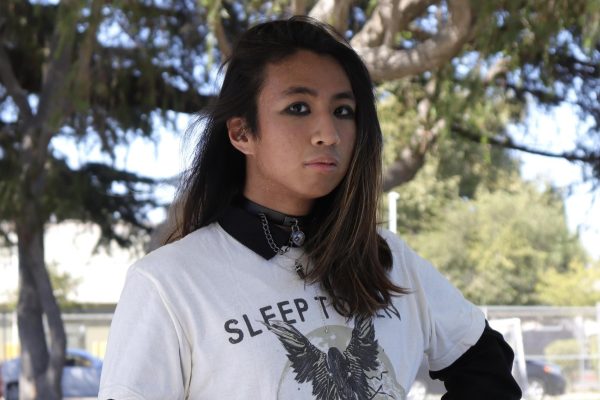Around mid-April, college students in universities such as Columbia and UCLA began pro-Palestinian encampments to protest their universities’ funding of Israeli organizations. At these protests, student journalists’ First Amendment rights have been consistently undermined by both the police and college administrators.
Since Oct. 7, 2023 there have been more than 36,000 deaths in Gaza, according to Al Jareez on May 28. Some college students feel that Israel is waging a genocide against Palestinians. Students began protesting on their campuses via encampments to call for their universities’ separation from companies that support Israel’s actions and to call for a ceasefire.
Amid the encampments, student journalists’ work has been instrumental in keeping their campuses and local communities informed and aware. The website for Columbia University’s WKCR Radio crashed due to the number of people attempting to access it during the protests. These students have the important perspective of an inside look at events on their campus, having access to sources that many mainstream news outlets don’t.
It’s incredibly frustrating to see authorities like police officers arrest and hold journalists for simply doing their jobs, especially in a time where accurate coverage of what’s happening is more important than ever due to misinformation becoming more accessible on social media. On May 1, two journalists, Charlotte Hampton and Alesandra “Dre” Gonzalez for the Dartmouth College newspaper, were arrested and charged with criminal trespasses despite reportedly wearing press credentials.
This isn’t a new problem. In 2020, a settlement agreement was made about how the New York City Police Department treats journalists following the Black Lives Matter riots. The settlement called for an “overhaul of how officers respond to demonstrations, including how journalists cover them,” according to Freedom of the Press Organization. Although authorities keep doing this because they believe that they could get away with it, there should be harsher legal consequences for departments that consistently enact this behavior.
University officials do more harm than good when they actively stifle student journalists’ ability to report on events. Columbia shut down all access to buildings on campus and prevented student press from retrieving equipment and personal items. On April 30, the student journalists had to negotiate their way to get back onto campus. University officials shouldn’t be hampering their journalists’ ability to report on local events.
As student journalists, we feel that more laws should be put in place to protect the First Amendment and to discourage the undermining of the Amendment through harsher legal consequences. Among the violent events occurring in this war, the safety and security of journalists must be guaranteed to facilitate a world where the truth is reported.









